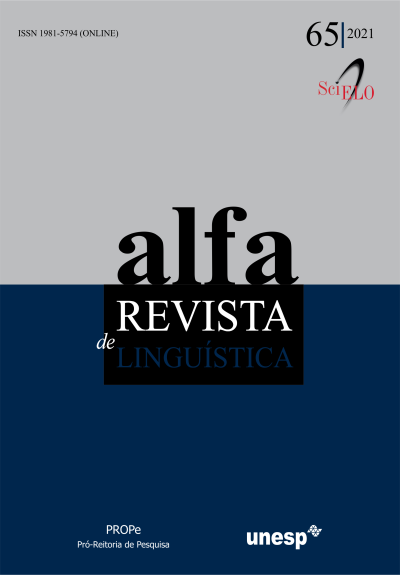A study of prepositions in the context of auxiliary verb constructions
DOI:
https://doi.org/10.1590/1981-5794-e12953Keywords:
Preposition, Construction of auxiliary verb of indirect incidence, Verbal aspect, Time, ModalityAbstract
In this article, we describe and analyze Portuguese language constructions formed by [auxiliary verb + preposition + infinitive], which are approached in a panchronic way, based on a cognitive and multisystemic conception of language. Our main objective is to explain why, in some of these constructions, the preposition tends to be deleted, especially in oral contexts, without cause any problem to the good formation of the sentence, while in other ones the preposition must be interposed between the auxiliary verb and the nominal form of infinitive, otherwise the good formation of the compound will be compromised. In the context of this larger question, we also seek to describe what kind of preposition occurs in these constructions, the correlation between the type of preposition and the grammatical function (aspect, time, modality) has been coded by the construction, as well as identifying factors determining the presence of preposition in these contexts. The results show that the prepositions A, DE, PARA and POR can occur in this context and that they are inherited from the context of the reanalysis of the construction, mostly linked to a syntactic purpose environment. The optionality of preposition in context is restricted to preposition A and conditioned by an overlap of factors linked to phonological, prosodic and semantic issues.
Downloads
Downloads
Published
How to Cite
Issue
Section
License
Manuscripts accepted for publication and published are property of Alfa: Revista de Linguística. It is forbidden the full or partial submission of the manuscript to any other journal. Authors are solely responsible for the article's content. Translation into another language without written permission from the Editor advised by the Editorial Board is prohibited.

